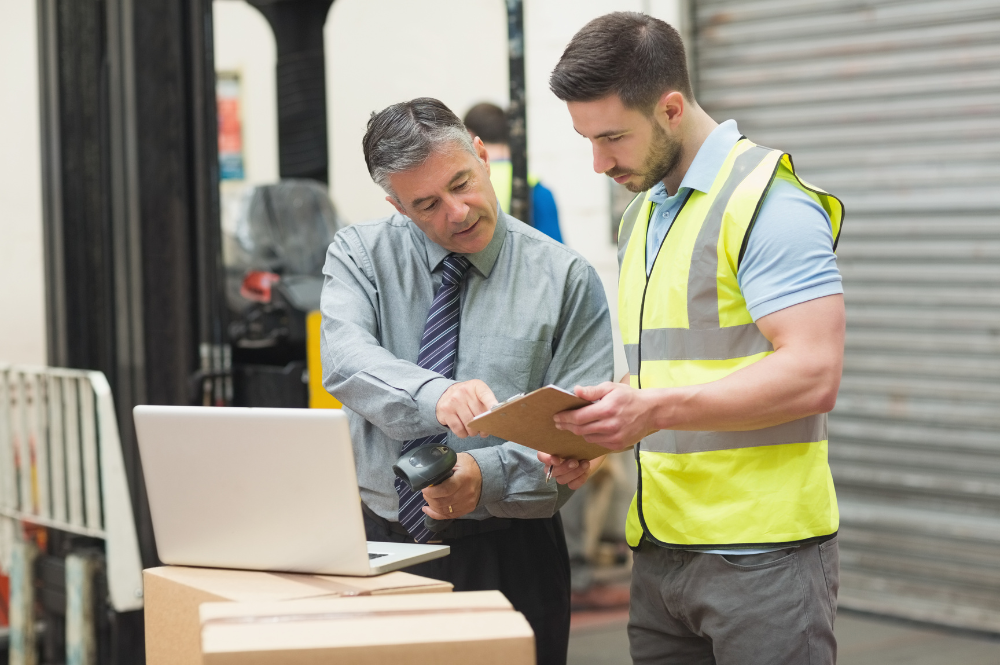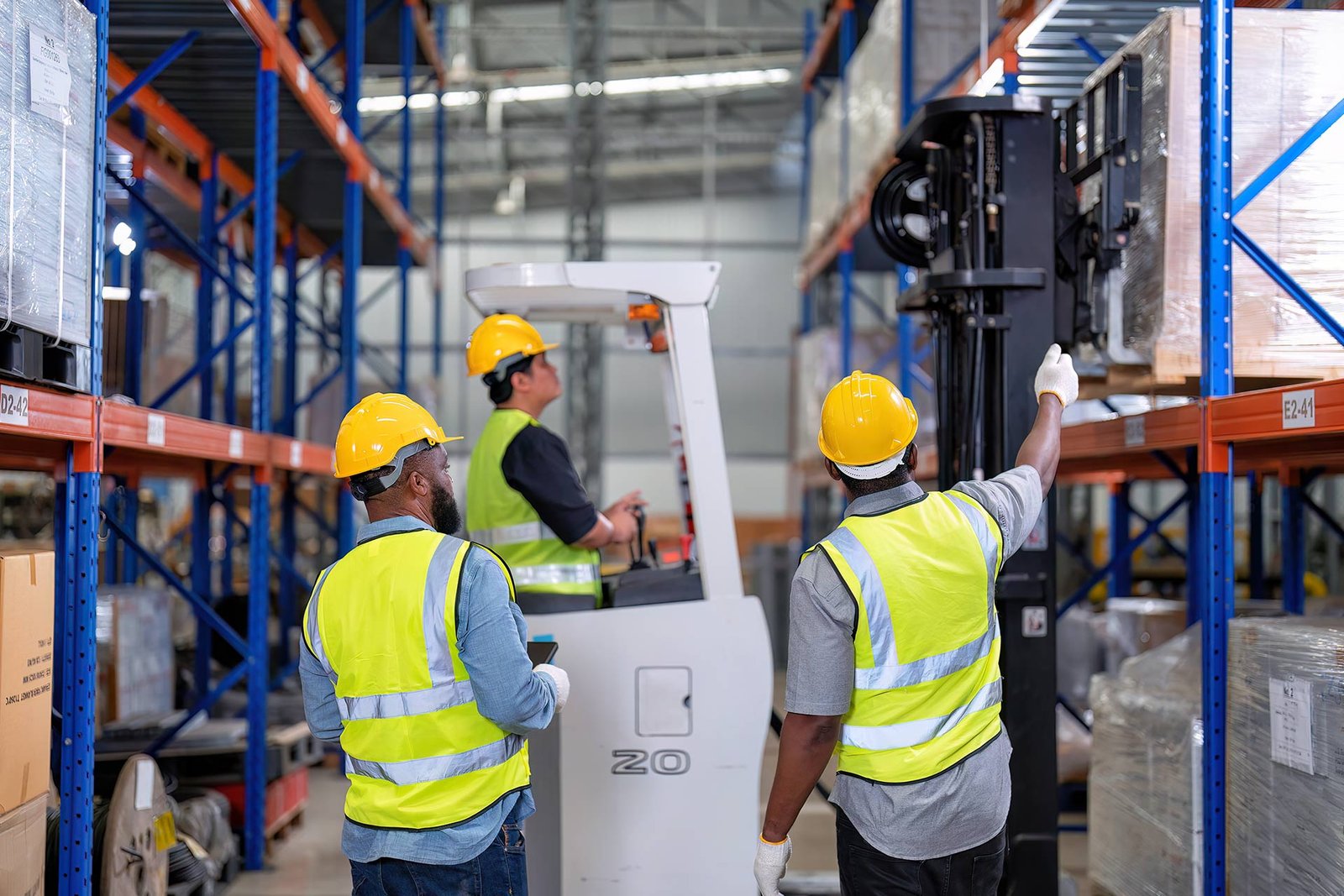Our Blog
Home / Blog
An In-Depth Beginner's Guide to the World of Goods Movement
- Admin
- December 12, 2023
- No Comments

Understanding the ABCs of Logistics: A Beginner's Guide
Welcome to the fascinating world of logistics! Whether you’re a small business owner, a budding logistics professional, or simply curious about how products move from one place to another, understanding the basics of logistics is essential.
In our interconnected world, logistics is the unseen but crucial force that keeps goods moving efficiently from manufacturers to consumers. This comprehensive guide is designed for those new to the field, offering an in-depth exploration of the core concepts, processes, and terms that define logistics.
Understanding Logistics: More Than Just Transportation
Logistics is often mistaken for mere transportation, but it’s much more. Logistics refers to the process of planning, implementing, and controlling the efficient and effective transportation and storage of goods from the point of origin to the point of consumption. It includes a variety of activities such as inventory management, transportation, warehousing, and delivery. It encompasses the entire journey of goods from raw materials to the end user. It’s about strategically managing these movements to ensure efficiency, cost-effectiveness, and customer satisfaction.
Key Terms in Logistics
Supply Chain Management (SCM): A broader term that encompasses logistics, SCM involves overseeing the entire lifecycle of a product, from design and production to distribution and disposal.
Inventory management: The practice of ordering, storing, tracking, and controlling inventory to ensure that the right amount of stock is available at the right time.
Warehousing: The storage of goods in a designated space until they are ready for distribution or delivery.
Transportation: The movement of goods from one location to another. This can include shipping, trucking, rail, air freight, and more.
Third-Party Logistics (3PL): Companies that provide logistics services to other businesses, including transportation, warehousing, and distribution.
Freight Forwarding: The coordination and shipment of goods on behalf of shippers, often involving multiple modes of transportation.
Reverse Logistics: Handling the return of goods from customers back to companies, including for refunds, recycling, or disposal.
Transportation: The movement of goods from one location to another. This can include shipping, trucking, rail, air freight, and more.
Third-Party Logistics (3PL): Companies that provide logistics services to other businesses, including transportation, warehousing, and distribution.
Freight Forwarding: The coordination and shipment of goods on behalf of shippers, often involving multiple modes of transportation.
Reverse Logistics: Handling the return of goods from customers back to companies, including for refunds, recycling, or disposal.
The role of data in logistics will continue to expand. DMX emphasizes the growing importance of data analytics, artificial intelligence, and machine learning in making informed decisions. Predictive analytics will play a crucial role in forecasting demand, optimizing routes, and enhancing overall supply chain visibility.
Addressing Future Challenges
- Order Processing: This step involves not just receiving orders but also validating and preparing them for fulfillment. Advanced systems are used for accuracy and efficiency.
- Inventory Control: More than just managing stock levels, this involves understanding demand patterns, optimizing storage, and reducing carrying costs.
- Warehouse Management: Advanced logistics uses warehouse management systems (WMS) for tasks like optimizing storage space, managing picking and packing processes, and improving worker productivity.
- Transportation Management: This step involves not just moving goods, but selecting the best routes, modes, and carriers, and often includes tracking and managing transportation in real-time.
- Delivery and After-Sales: The final mile delivery is critical for customer satisfaction. This stage also involves managing returns and providing customer support.
Logistics Challenges and Solutions
– Globalization: Logistics is no longer just local or national but often global in scale, presenting challenges like cross-border regulations and longer supply chains.
– Technology Integration: Successfully integrating new technologies like AI and blockchain can be complex but is essential for modern logistics.
– Risk Management: From natural disasters to political changes, logistics must plan for and mitigate various risks.
The Exciting Future of Logistics
The future of logistics is being reshaped by groundbreaking technologies, promising revolutionary changes in the industry. Autonomous vehicles, including self-driving trucks and last-mile delivery robots, are poised to increase efficiency and reduce costs by enabling round-the-clock operation and minimizing human error. Drone delivery is emerging as a game-changer for rapid, cost-effective distribution, especially in overcoming traffic and geographical challenges. The integration of blockchain technology in logistics promises enhanced transparency and security, offering an immutable record of transactions and movements within the supply chain. The Internet of Things (IoT) is transforming supply chain management with real-time tracking and monitoring of goods, coupled with predictive maintenance for logistics equipment. Additionally, the application of AI and machine learning enables smarter, data-driven decision-making and predictive analytics, optimizing inventory levels and foreseeing future demands. These innovations, while promising to streamline operations and improve customer service, also bring challenges like navigating regulatory landscapes and ensuring robust cybersecurity.
Conclusion
Logistics plays a critical role in our daily lives, ensuring that goods are delivered safely and efficiently. By understanding the basics of logistics, you can better appreciate the complexity and importance of this field. Whether you’re considering a career in logistics or simply looking to understand more about how products reach your doorstep, the world of logistics has much to offer. As we look to the future, the role of logistics will only grow in importance, driven by technological advancements and an ever-increasing demand for efficient, customer-focused supply chain solutions.
Recent Blog

Mastering Global Logistics
December 12, 2023

The Role of Data Analytics in Supply Chain Optimization
January 23, 2023
Confused About Choosing The Right Shipping Service for Your Goods?
Embracing Future Opportunities
E-Commerce Expansion:
With the ongoing growth of e-commerce, DMX sees significant opportunities for expansion. The company anticipates increased demand for tailored logistics solutions to support the evolving needs of online retailers and meet the expectations of today’s discerning consumers.
Collaborative Partnerships:
DMX recognizes the potential for collaborative partnerships within the industry. Strategic alliances and partnerships will be essential for addressing complex challenges and fostering innovation. DMX is actively seeking opportunities to collaborate with other industry leaders and startups to drive positive change.
A Visionary Future
DMX’s thought leadership extends beyond the present, reaching into a future where logistics is not just a service but a catalyst for positive global change. By anticipating and adapting to upcoming trends, challenges, and opportunities, DMX is not only navigating the future but actively shaping it, ensuring that the logistics industry remains at the forefront of innovation and excellence. As a trusted advisor and industry influencer, DMX continues to lead the way, inspiring others to join in the journey towards a dynamic and prosperous future for logistics.
Information
Phone
00971 434 39257
info@dmxlogistics.ae
Address
DMX Global Logistics LLc Dubai
© Powered by Digitz Technologies

